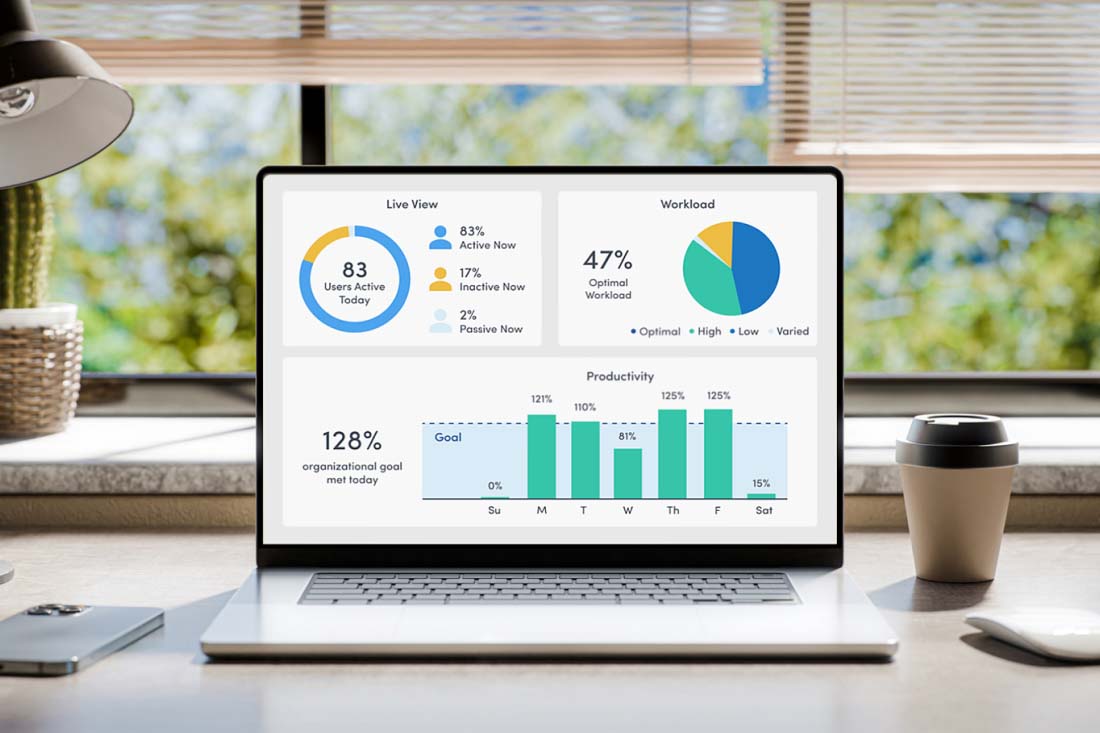For employees to be their most efficient and effective, managers must find ways to streamline workflows, enhance collaboration and increase productivity overall. But with hundreds of productivity apps on the market, how do you choose the right ones?
Keep reading to get a better understanding of what office productivity software is and why it matters, as well as best practices in choosing the right one for your organization.
Why the right office productivity software matters
When teams have access to the right productivity tools, they communicate more effectively, manage tasks efficiently and focus on delivering results. But the wrong software adds stress and convolutes work processes for your employees and increases costs for your organization.
Appropriate productivity software leads to significant cost savings. For example, automating routine or mundane tasks allows organizations to reduce overall costs anywhere from 10 to 50%. Additionally, software that makes employees’ jobs easier helps prevent burnout, which costs organizations up to $21,000 per employee annually.
When used properly, office productivity software helps your organization:
- Make informed decisions through data and analytics
- Refine strategies by tracking performance metrics and finding areas for improvement
- Respond quickly to market changes and customer needs
In contrast, the wrong software can cost your employees time and your organization money. A recent Freshworks report revealed that nearly nine out of 10 IT employees waste over seven hours a week on overly complicated apps or software. The same study found over half of IT workers say their organizations pay for SaaS software or features the team doesn’t use. As a result, companies lose up to $15,000 per employee each year on unused software licenses.
What is office productivity software?
Office productivity software is a suite of applications designed to help with the creation, management and sharing of documents and data. These tools help users perform tasks and collaborate with each other. They can be standalone or part of a larger suite.
As workplaces become more complex and remote work continues to be popular, cloud-based productivity apps are increasingly important. These apps allow employees to edit and share in real-time, regardless of their physical location. This also ensures all team members have access to the latest version of a document or presentation without getting lost in email chains or version control conversations.
Many productivity software solutions also incorporate advanced features like AI and automation. These features help users automate repetitive tasks, analyze data trends and suggest improvements to their work.
6 types of office productivity tools you should know
Understanding what different types of productivity tools do will help you make an informed decision. Most fall into several key categories you’re likely familiar with:
- Word processing software allows users to create and edit text documents efficiently.
- Spreadsheet applications allow workers to perform data analysis, budgeting and financial forecasting.
- Presentation software helps users create visually engaging presentations for meetings, conferences, training and sales purposes.
- Email clients allow users to communicate and schedule meetings effectively.
- Collaboration and communication tools facilitate real-time communication and sharing between team members.
- Project management tools allow teams to assign tasks, track project progress and identify bottlenecks.
Key features to look for in office productivity software
Certain features make a significant difference in user experience and productivity. Here are some key features to consider when evaluating office productivity software or a productivity suite:
- Cloud integration: Cloud-based solutions make it easy for team members to access files from anywhere, fostering remote work and collaboration.
- Real-time collaboration: Look for tools that let multiple users work on the same document simultaneously to enhance teamwork and reduce the confusion of multiple versions.
- User-friendly interface: A clean, intuitive interface reduces the learning curve and improves overall efficiency, as well as the likelihood team members will use the app effectively.
- Compatibility: Ensure the software is compatible with other tools and systems you already use in your organization.
- Security features: Choose software that offers robust security measures to safeguard sensitive information, including intellectual property, employee information and customer data.
Factors to consider before you choose office productivity software
Before making a decision, consider several factors to ensure the software aligns with organizational needs:
- Budget: Determine how much your organization is willing to invest in productivity software, including initial costs and ongoing subscription fees.
- Team size: The number of people using software impacts pricing, as some tools offer tiered pricing based on user counts.
- Specific needs: Consider your organization’s unique needs, like design tools for marketing vs. advanced spreadsheet capabilities for finance teams.
- Scalability: Choose software that grows with the organization as teams expand or your needs change.
- Support and training: Consider how much support and training the software company offers, as this can make a significant difference in how usable the software is.
Common productivity tool pitfalls and how to avoid them
Choosing office productivity software can be challenging. Here are some common pitfalls to look out for and tips on avoiding them:
- Neglecting user feedback: Always involve team members who will use the software in the selection process to gather insights on their needs and preferences.
- Overlooking integration: Ensure the chosen software integrates with existing tools to avoid workflow disruptions.
- Ignoring training needs: Without adequate training, team members may underutilize the software.
- Choosing based on features alone: While features are important, consider the overall user experience and how well the software meets the organization’s specific needs.
Make your productivity software investment count with ActivTrak
Choosing the right office productivity software is a strategic decision that enhances efficiency, collaboration and productivity. But the process of selecting the right software or suite can be time-consuming and frustrating.
Simplify the process with ActivTrak’s SaaS management software. Understand which apps or tools employees use to do actual work. Identify underutilized apps to increase training or let go of unused SaaS licenses to save on cost. Find gaps in your tech stack to help employees perform at their best.
Request a free demo to learn how ActivTrak helps you find the right office productivity solution for your team today.





